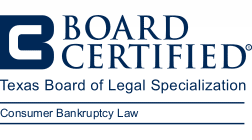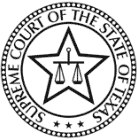Houston, TX IRS Problems Lawyer
Experienced Bankruptcy Lawyer Assisting Clients with IRS Problems in Houston, TX
The IRS is well-known for going after anyone who owes money on their taxes, regardless of the person's financial situation or ability to pay their tax debt. The state of Texas may also pursue back taxes. If you have tax debt that you know you will not be able to pay off, filing for bankruptcy can get your tax debt forgiven in certain situations. Many who owe back taxes also have other types of debt, such as credit card debt or personal loan debt. Taking advantage of the opportunity to discharge most or all of your financial obligations through bankruptcy may be the best way to free yourself from insurmountable debt.
The Fealy Law Firm, PC is experienced in helping those with tax debt and IRS problems fix their tax issues. Houston area attorney Vicky Fealy can assess your financial and tax situation to determine how best to help you find relief from this debt. The IRS can create numerous problems in your life when you owe back taxes. Our dedicated legal team will do all we can to help you escape your tax debt and free yourself from the IRS.
Are Back Taxes Discharged in Bankruptcy?
Fortunately, most debts related to taxes can be discharged through bankruptcy. Student loans are normally the only type of debt that is not automatically discharged when a person files for bankruptcy. If you are having trouble with the IRS and receiving constant demands for payment, filing for bankruptcy can put a stop to those collection efforts immediately. Your bankruptcy will likely end with your remaining tax debt being dismissed.
Chapter 7 Bankruptcy and Back Taxes
Chapter 7 bankruptcy is called "liquidation bankruptcy." Filing under this chapter does mean that some of your assets may be sold off in order to pay your creditors, including the IRS. However, most or all of what you own is likely exempt from the liquidation process.
You can usually keep the vehicle you need to get to work, some personal effects like clothing or furniture, and some family heirlooms, as well as certain other assets. Chapter 7 bankruptcy may not be as terrible as you may believe it is. Many people are surprised with the amount of their belongings they are able to keep.
Filing Chapter 13 Bankruptcy to End IRS Problems
Chapter 13 bankruptcy is more like a restructuring of debt. Your debts, including tax debts, will be consolidated so that you will only make a single monthly payment instead of the many you may have been juggling. The downside is that this monthly payment is carefully calculated to approximately equal the full amount of your disposable income. You will keep the income you need to cover your basic expenses, like rent, food, utilities, and medical care. However, any money that would have been considered disposable will be expected to be put towards repaying your debt.
This type of bankruptcy may be for you if you have the ability to continue making payments. You should know that these payments last a limited number of time, usually between three and five years. At the end of this time period, any debt that you still owe will be discharged.
While both types of bankruptcy ultimately bring you a new, debt-free start, they each come with their own challenges. Attorney Fealy will asses the types of debts you owe and your personal financial situation to help you make the right decision about what type of bankruptcy to file.
Contact a Pasadena Bankruptcy Lawyer for IRS Debts
The Fealy Law Firm, PC is committed to helping people who owe significant back taxes and are being relentlessly pursued by the IRS, working with them to resolve their tax debts and other financial obligations. Experienced Houston area attorney Vicky Fealy will work with you to find the best solution in your case. Contact us at 713-526-5220 to start with a free consultation.












